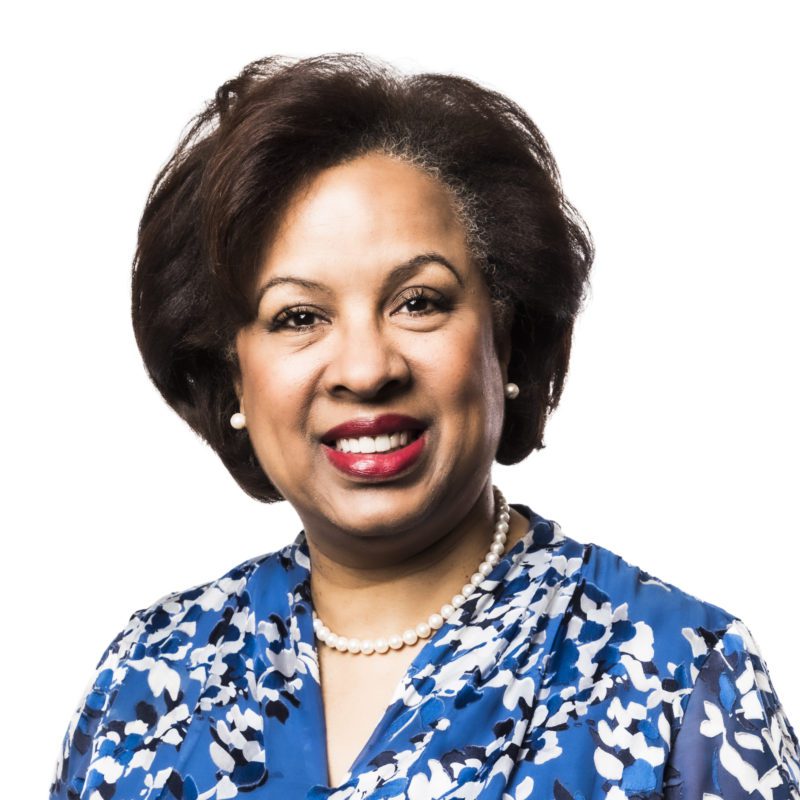
Toni Townes-Whitley, President, U.S. Regulated Industries, Microsoft
Under Toni Townes-Whitley’s leadership, Microsoft Azure Government has been chosen to provide cloud capabilities to the Defense Department through the JEDI contract. For Townes-Whitley, the award represents a tangible and significant step by DOD in transforming its mission support for the U.S. warfighter by acquiring robust, innovative and secure commercial cloud capabilities.
“We believe our long-time partnership with the DOD and other government agencies has been critical in translating their needs into solutions from the back office to the most forward-deployed troops in theater,” she said. “ We look forward to working with the DOD to advance its mission throughout the contract and beyond. ”
With the onset of COVID-19, Microsoft has rallied to support its customers as they tackle frontline challenges. For example, in response to the National Emergency Declaration, DOD directed the majority of its workforce to work remotely and created the Commercial Virtual Remote environment to provide secure teleworking capabilities to millions of users across the entire department.
“We got into the trenches with this customer working round the clock to stand up the single largest tenant of Office 365 with the speed of deployment exceeding anything before it,” Townes-Whitley said.
Microsoft also went to work at the peak of the pandemic in New York with Gov. Andrew Cuomo’s “tech squad” and built a mobile COVID-19 self-assessment and testing tool in less than three days. The company partnered with the Centers for Disease Control and Prevention to deliver a publicly accessible health-bot in less than two weeks that quickly disseminated information to citizens and provide guidance to seek emergency medical care if appropriate.
“These are just a few examples of the amazing work done by my team in the trenches supporting the first responders,” Townes-Whitley said.
Even though the government was already accelerating the pace required in adopting technology to deliver modern mission outcomes before the pandemic, COVID-19 fast-tracked the modern cloud technology adoption at unprecedented speeds.
“Relying on digital technology and data has proven to be a necessity, not a luxury, for both public and private sector during this time,” Townes-Whitley said. “This has served to accelerate some of the trends we were already seeing across our customers, and across Microsoft, tied to ‘remote everything’ — mobility support, remote work, remote learning, telemedicine and distributed teams.”
Why Watch
According to Townes-Whitley, restarting economies successfully will be a defining moment for government leaders driving with urgency the adoption of commercial innovation, and for other public sector leaders accelerating digital transformation to help drive resiliency in their business models. However, these shifts have revealed critical issues related to information access, decision-making, productivity and security.
And agencies are looking to solve real problems quickly, in areas where tech can often act as a core enabler to the solution, which is why Microsoft is seeing accelerated digital transformations by governments and organizations of all sizes right now.
As Townes-Whitley and her team anticipate what’s next, Microsoft is helping customers respond to the immediate impact — whether that’s in education, health care, financial services or government.
“As these sectors look ahead to recovery, they are being asked to rebound quickly by making faster decisions on where to invest and apply technology, under the pressures of today’s socio-economic dynamics,” Townes-Whitley said.
The conflux of the pandemic, the economic downturn and the social justice movement the nation is experiencing are also forcing industry to reevaluate and reimagine how it can best support customers.
“With no precedent to inform chief information officers on a pandemic recovery of this magnitude, we are helping public sector leaders navigate each phase, as they respond, rebound and reimagine their mission outcomes, in ways that anticipate the new normal in our future,” Townes-Whitley said.

